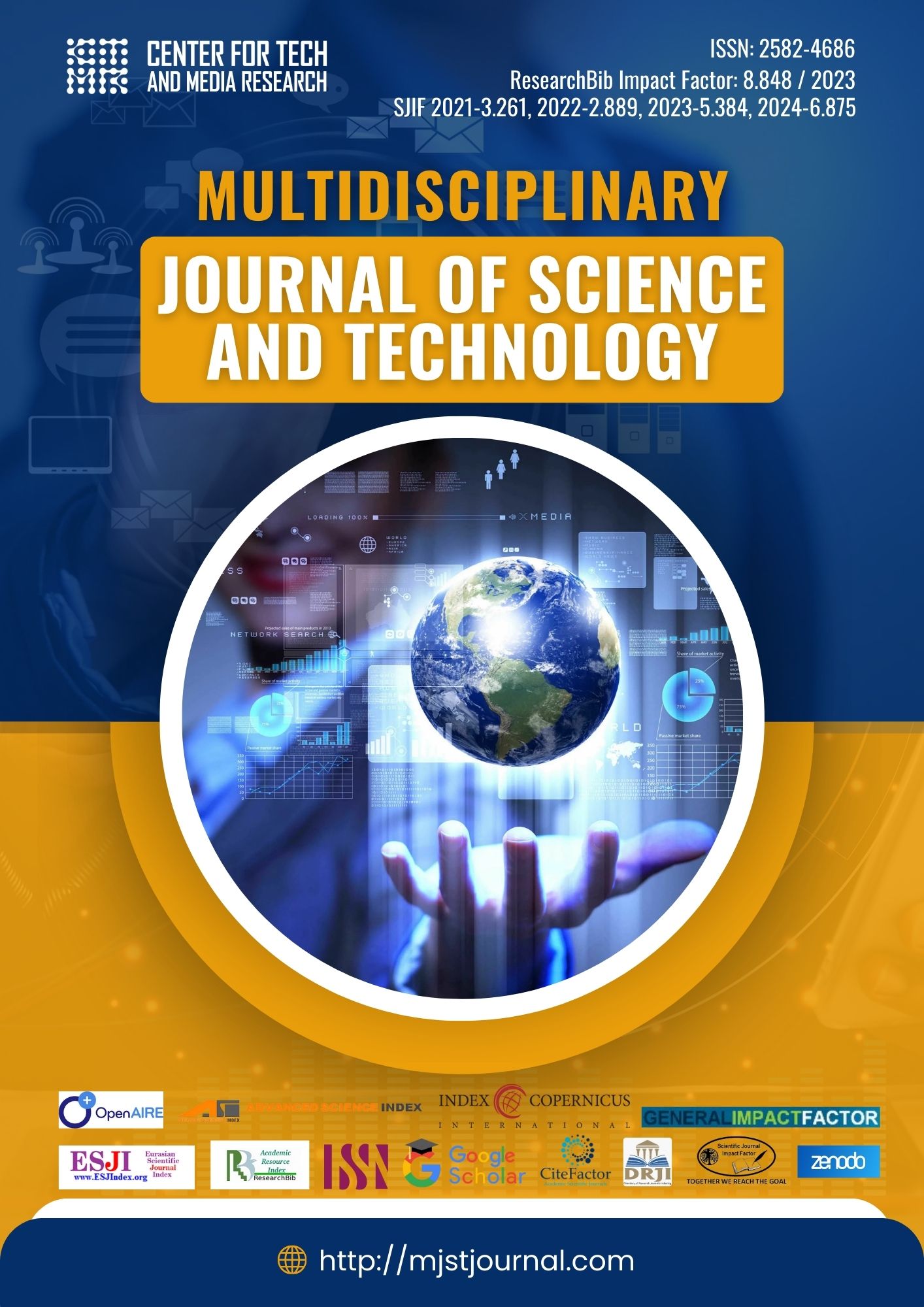The role of Technology in Business Innovation
Omar Ashurbaev
Senior Lecturer, MU University, Tashkent
Nozima Azimjonova
Student, MU University, Tashkent
##semicolon## Technology in business innovation##common.commaListSeparator## Artificial Intelligence (AI), Machine Learning (ML)##common.commaListSeparator## technological adoption
सार
Technology plays an important role in the development of innovation in today's emerging industry. This article examines how technological advances, particularly in areas such as Artificial Intelligence (AI), Machine Learning (ML), are driving operational efficiency and product service innovation to shape business models. Through primary and secondary research, surveys further facilitate analysis and explore how technologies are adopted in the development of innovation. The study examines the benefits of technology in improving and accelerating business efficiency and customer experience. However, over-reliance on technology also creates problems. The result of the survey shows that 75% of the technology maintains an advantage over competitors. 25 percent say that new technological solutions are complicated. The study also observed that businesses in industries such as healthcare, retail and manufacturing are using artificial intelligence, cloud computing to drive innovation. Business growth highlights the dependence on technology and the challenges organizations face in effectively integrating it.
##submission.citations##
Shala, V., Bytyçi, S. and Dodaj, P. (2021). The role of innovation in the growth of the company: A case of the emerging country. Journal of Governance and Regulation, 10(4), pp.175–182. doi:https://doi.org/10.22495/jgrv10i4art16.
Brynjolfsson, E. and McAfee, A. (2014). The second machine age: Work, progress, and prosperity in a time of brilliant technologies. [online] psycnet.apa.org. Available at: https://psycnet.apa.org/record/2014-07087-000 [Accessed 16 Dec. 2024].
Bughin, J., LaBerge, L. and Mellbye, A. (2017). The case for digital reinvention | McKinsey. [online] www.mckinsey.com. Available at: https://www.mckinsey.com/capabilities/mckinsey-
McKinsey & Company (2022). The state of AI in 2022--and a half decade in review | mckinsey. [online] www.mckinsey.com. Available at: https://www.mckinsey.com/capabilities/quantumblack/our-insights/the-state-of-ai-in-2022-and-a-half-decade-in-review [Accessed 18 Dec. 2024].
digital/our-insights/the-case-for-digital-reinvention [Accessed 17 Dec. 2024].
Leovigildo Lito Mallillin and D Mallillin (2024). Artificial Intelligence (AI) Towards Students’ Academic Performance. [online] ResearchGate. Available at: https://www.researchgate.net/publication/381855565_Artificial_Intelligence_AI_Towards_Students [Accessed 18 Dec. 2024].
Bankins, S. and Formosa, P. (2023). The Ethical Implications of Artificial Intelligence (AI) For Meaningful Work. [online] ResearchGate. Available at: https://www.researchgate.net/publication/368449936_The_Ethical_Implications_of_Artificial_Intelligence_AI_For_Meaningful_Work [Accessed 18 Dec. 2024].

















